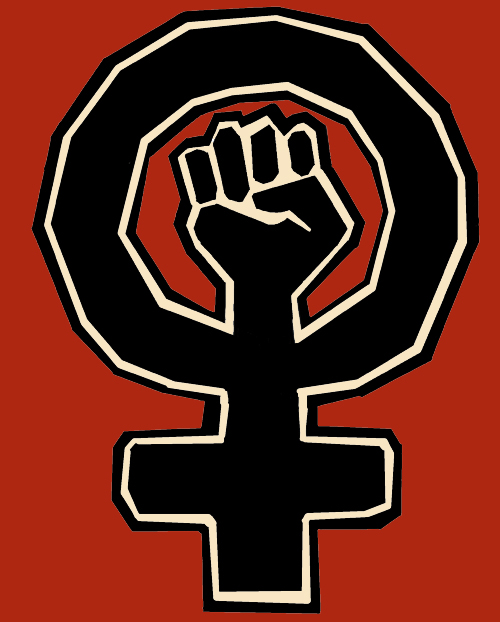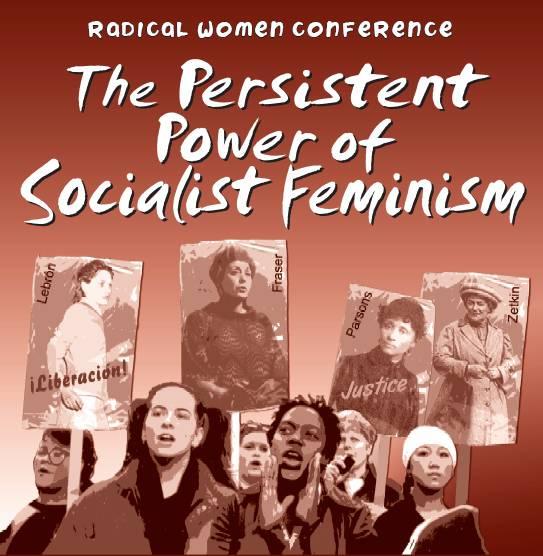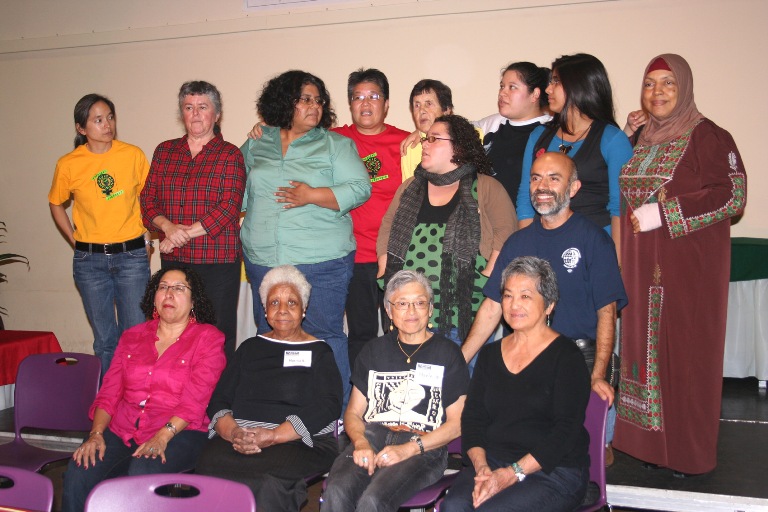Radical Women Conference
Featured Community Voice: Michael DeLong
Feminist Michael DeLong attended the Radical Women's National Conference in October 2008. He was interested in their analysis of the connection between capitalism and patriarchy, and how the two intertwine to limit possibilities for women internationally. He found inspiration in the solidarity of women around the world who are addressing these limitations and fighting back.

In her opening keynote at the 2008 conference of Radical Women, poet Nellie Wong sparked the passion of the crowd: "This weekend, we continue the fight for women's liberation because it's as necessary as breathing. It is our greatest duty. It is our greatest joy."
The Radical Women, a socialist feminist organization, held their 41st anniversary conference in October 2008, at San Francisco's historic Women's Building. Entitled "The Persistent Power of Socialist Feminism," the conference brought together people from all over the world engaged in organizing resistance to exploitation and oppression.
The Importance of Women's Leadership
A central theme of the conference was the critical role that women's leadership plays on a global scale. As one member of the Socialist Workers Party from Mexico noted, her party is pushing itself forward by participating in the conference and recognizes that taking up women's rights is integral to achieving its aims. She referenced the Zapatista Army of National Liberation as a model for the presence of women in leadership roles.
Four dynamic days of workshops, speakers, and policy resolutions presented an opportunity for intense learning and networking, and produced concrete action plans for strengthening women's leadership in social movements and cooperating with other committed activists internationally.
Global Updates
International perspectives permeated the conference. At the panel discussion "Magnificent Warriors: Female Leadership in the Global Freedom Struggle," Australian trade unionist Debbie Brennan spoke of the challenges women in her country face. Her government has publicly chastised women for not having enough babies and instated measures to keep women at home. She went on to outline ways such challenges can be overcome through organizing, citing the gains achieved by the Clean Clothes and Clean Start campaigns, run by mostly women union workers.
On the same panel, Israeli-American Dr. Raya Fidel, an outspoken Jewish feminist and professor of information science at the University of Washington, described the strength of Palestinian women who, during the time of the Intifada, created an "underground state" for healthcare, food, and other basic needs. She also spoke of Israeli and Palestinian women coming together to watch over checkpoints and observe and record the behavior of soldiers. Other panelists came from Mexico, Costa Rica and China to report on similar situations in those countries.
Bridging Multiple Borders
Divisions both between and within countries were addressed at the conference, as well as divisions within the leftist movement itself.
One conference attendee from Seattle explained that women are used to sharing power and therefore are obvious leaders in bridging various political factions to achieve more effective organizing.
Seattle Radical Women president Christina López led discussion of the policy resolution "Estamos en la Lucha: Immigrant Women Light the Fires of Resistance," which exposes the impact of U.S. immigration policies on women and children and highlights the leadership of migrant women worldwide fighting for the right to survive. Radical Women members voted unanimously to emphasize defense of immigrants and to send López on a national speaking tour to address the issue.
On the panel "The Galvanizing Impact of Multiracial Organizing in a Society Divided by Racism," Radical Women of New York City president Emily Woo Yamasaki affirmed the group's belief in the fundamental need for leadership by women of color and led discussion of ways to teach and put this belief into action.
From International Gathering to Local Action
The conference concluded with group action plans and a report by national organizer Anne Slater. The group decided on a door-to-door survey to find out what issues are most important to women in local communities, followed by the development of campaigns around those topics. Slater declared, "Armed with dynamic ideas, principled politics, and a rich legacy of practical organizing experience, we are ready to do what is needed."



